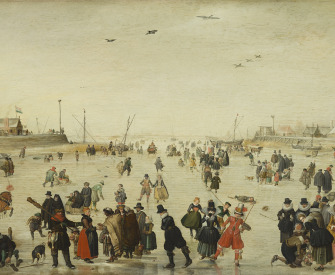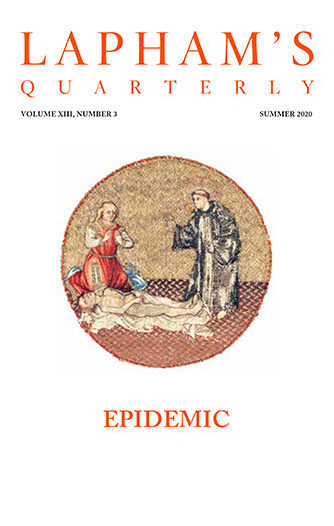Claudius: Now Hamlet, where’s Polonius?
Hamlet: At supper.
Claudius: At supper? Where?
Hamlet: Not where he eats, but where a is eaten. A certain convocation of politic worms are e’en at him. Your worm is your only emperor for diet: we fat all creatures else to fat us, and we fat ourselves for maggots. Your fat king and your lean beggar is but variable service, two dishes, but to one table; that’s the end.
Claudius: Alas, alas.
Hamlet: A man may fish with the worm that hath eat of a king, and eat of the fish that hath fed of that worm.
Claudius: What dost thou mean by this?
Hamlet: Nothing but to show you how a king may go a progress through the guts of a beggar.
Claudius: Where is Polonius?
Hamlet: In heaven, send thither to see. If your messenger find him not there, seek him i’th’other place yourself. But if indeed you find him not within this month, you shall nose him as you go up the stairs into the lobby.
Claudius: Go seek him there.
Hamlet: A will stay till you come.
[Exeunt attendants]
Claudius: Hamlet, this deed, for thine especial
safety,
Which we do tender, as we dearly
grieve
For that which thou hast done, must
send thee hence
With fiery quickness. Therefore
prepare thyself.
The bark is ready and the wind at
help,
Th’associates tend, and everything is
bent
For England.
Hamlet: For England?
Claudius: Ay Hamlet.
Hamlet: Good.
Claudius: So is it if thou knew’st our purposes.
Hamlet: I see a cherub that sees them. But come, for England! Farewell dear mother.
Claudius: Thy loving father, Hamlet.
Hamlet: My mother. Father and mother is man and wife, man and wife is one flesh, and so, my mother. Come, for England.
From Hamlet. Danish king Claudius summons Hamlet to reveal the location of Polonius’ body in the third scene of Hamlet’s fourth act. According to the 1603 quarto edition, the play was first performed in London in the early 1600s, most likely at the Globe playhouse in Southwark. In 1607 it was performed on board an East India Company ship anchored off the coast of Sierra Leone. The captain later noted in his journal that the play kept “my people from idleness and unlawful games, or sleep.”
Back to Issue


